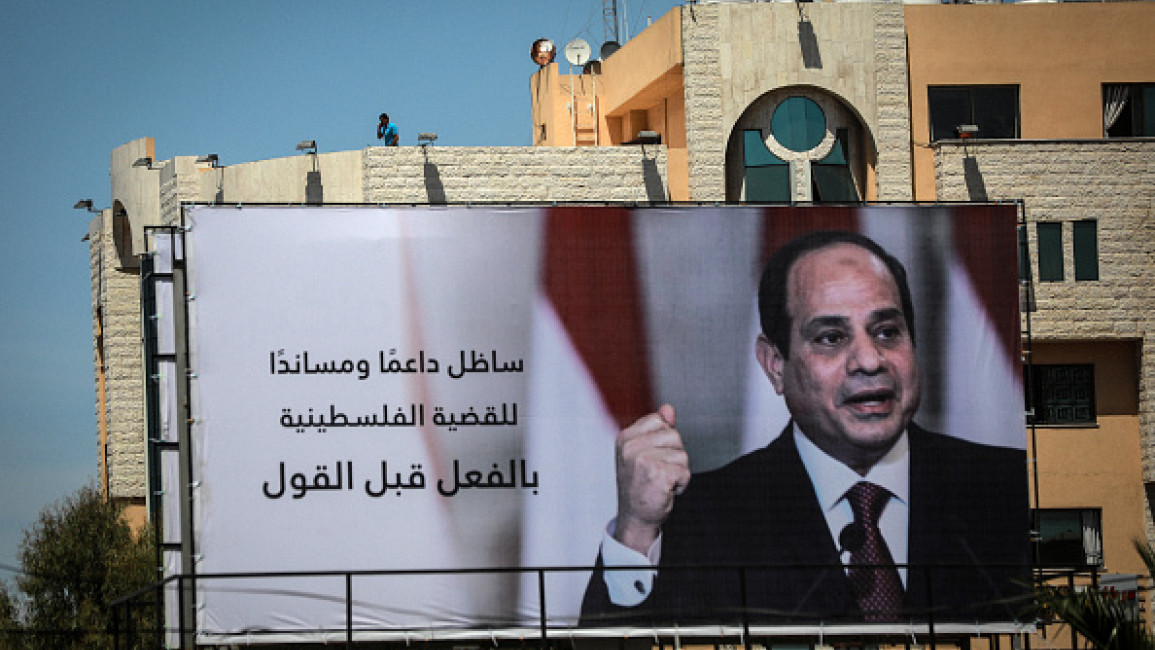Huge portraits of Egypt's President Sisi appear on Gaza streets
A group of Palestinians raised portraits of Egyptian President Abdul Fattah El-Sisi in some main streets in the Gaza Strip on Sunday, expressing gratitude from local residents for reconstruction parts of the war-battered Gaza Strip.
After years of retreat, Egypt is making its presence felt again in the neighbouring Palestinian enclave, emerging as a key benefactor in the aftermath of the last bombing of Gaza by Israel in May.
Gaza resident Mohammed al-Salihi, who was putting up Sisi's photographs, told The New Arab that "Egyptian and Qatari efforts have had a significant and clear impact in achieving the Palestinians' dream of the reconstruction as soon as possible".
"We know very well that political issues control everything that happens in Gaza, but we have to give our thanks to everyone who helps us live, even if it is by hanging such pictures," he said.
Usually, Hamas, which rules the impoverished strip, allows pictures of Arab leaders to be displayed on Gaza streets as thanks for political, diplomatic and economic cooperation with them.
After weeks of the end of the 11-day Israeli war on Gaza in May, Cairo sent Egyptian construction workers to the besieged enclave to rebuild a main street on the seacoast west of Gaza City and two residential neighbourhoods in the north and centre of the coastal enclave.
Cairo also pledged a $500 million package to reconstruct parts of the enclave, which borders Israel and Egypt.
Relations between Cairo and Hamas have been sour, particularly after the 2013 military ouster of late President Mohamed Morsi, who was also part of the now banned Muslim Brotherhood.
Hamas - which is linked to the movement - is in desperate need of international aid for reconstruction.
Positive relations with Egypt are an added benefit for Hamas, which controls the Rafah border, often the only access point for much-needed construction material to the enclave.
Oil-rich Qatar has also dispensed tens of millions of dollars in aid to poor families in Gaza.
But a dispute arose over the distribution of salaries to Hamas officials as Israel objected to cash payments, alleging that the Islamist movement could divert money to its armed faction.



